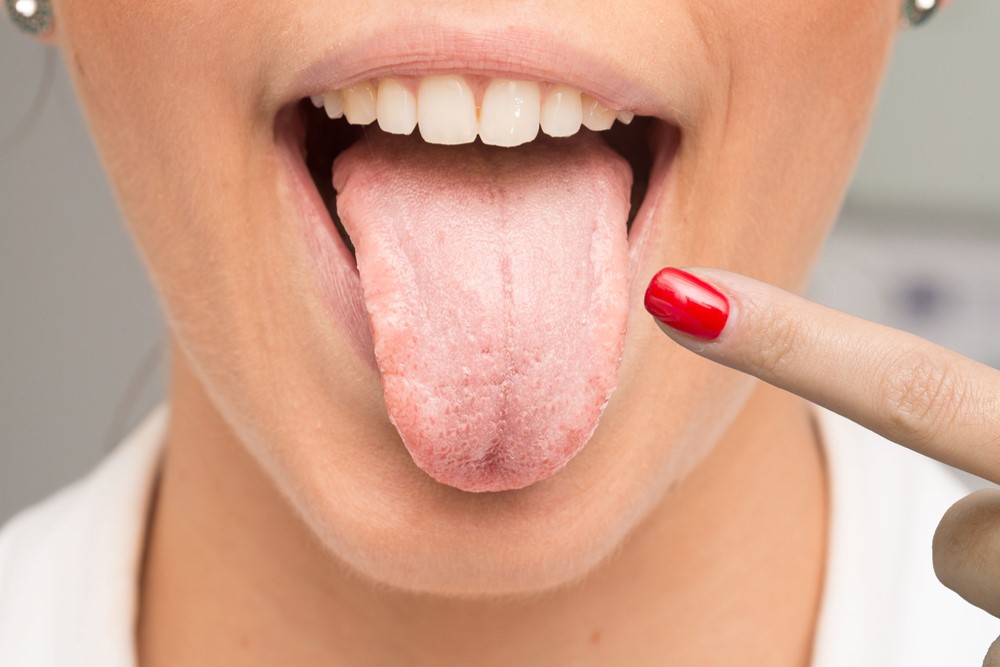
Nội dung bài viết / Table of Contents
This post is also available in: Tiếng Việt (Vietnamese)

Oral thrush was also known as oral candidiasis which is a fungal infection of the mouth. It is not contagious and usually successfully treated with antifungal medication. The condition is that the fungus Candida albicans accumulates on the lining of your mouth. Candida is a normal organism in your mouth, but sometimes it can overgrow and cause symptoms.
This Oral Thrush is extremely popular. It commonly affects more on females than males. It can affect patients at any age. This disease can be managed by reducing your risk factors. Please discuss with your doctor for further information.
The common symptoms of oral thrush are:
In severe cases, the lesions may spread downward into your esophagus which is the long, muscular tube stretching from the back of your mouth to your stomach (Candida esophagitis). When this occurs, you may experience difficulty swallowing or feel as if food is getting stuck in your throat.
Initially, you may not even notice symptoms of oral thrush. Depending on the underlying cause, signs and symptoms may develop slowly or suddenly, and they may persist for days, weeks or months.
In addition to the distinctive white mouth lesions, infants may have trouble feeding or be fussy and irritable. They can pass the infection to their mothers during breast-feeding.
The infection may then pass back and forth between the mother’s breasts and the baby’s mouth. Women whose breasts are infected with candida may experience these signs and symptoms:
There may be some symptoms not listed above. If you have any concerns about a symptom, please consult your doctor.
If you have any signs or symptoms listed above or have any questions, please consult with your doctor. Everyone’s body acts differently. It is always best to discuss with your doctor what is best for your situation.
Normally, your immune system works to repel harmful invasion organisms, such as viruses, bacteria and fungi, while maintaining a balance between “good” and “bad” microbes that normally inhabit your body.
However sometimes these protective mechanisms fail, increasing the number of candida fungi and allowing an oral thrush infection to take hold.
Oral thrush and other candida infections can occur when your immune system is weakened by disease or by drugs such as prednisone, or when antibiotics disturb the natural balance of microorganisms in your body.
These diseases and conditions may make you more susceptible to oral thrush infection:
Other causes include:
There are many risk factors for Oral Thrush, such as:
The information provided is not a substitute for any medical advice. ALWAYS consult with your doctor for more information.
Your dentist can diagnose thrush by examining your mouth. He or she looks for the distinctive white lesions on your mouth, tongue, or cheeks. Lightly brushing the lesions away reveals a reddened, tender area that may bleed slightly. A microscopic examination of tissue from a lesion can confirm the diagnosis.
Thrush that extends into your esophagus may require other tests to make the diagnosis. Such tests might include:
Oral thrush can usually be successfully treated with antifungal medicines. Although tablets or capsules are sometimes used, these usually come in the form of gels or liquid that you apply directly inside your mouth (topical medication).
To be noticed that topical medication will usually need to be used several times a day for around 7 to 14 days, and tablet or capsules are usually taken once daily.
Although some can cause nausea (feeling sick), vomiting, bloating, abdominal (tummy) pain and diarrhea these medications do not often come up with side effects. Your dentist will have a specific treatment approach designed for you based on your age and the cause of the infection.
If antibiotics or corticosteroids are thought to be causing your oral thrush, the medicine – or the way it is delivered – may need to be changed or the dosage reduced.
The reason is that the presence of candida infection can be a symptom of other medical problems, your dentist may suggest you seek care from a medical doctor as well so that any underlying health problems can be treated.
The following lifestyles and home remedies might help you cope with Oral Thrush:
If you have any questions, please consult with your doctor to better understand the best solution for you.
Sources: